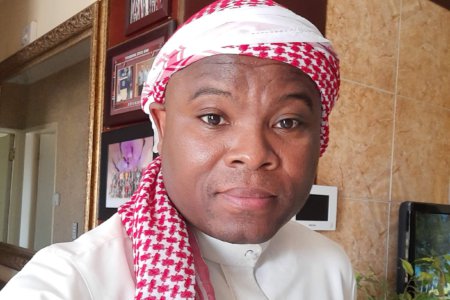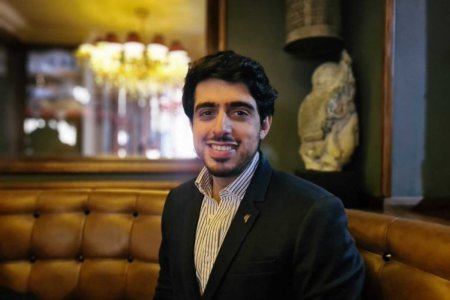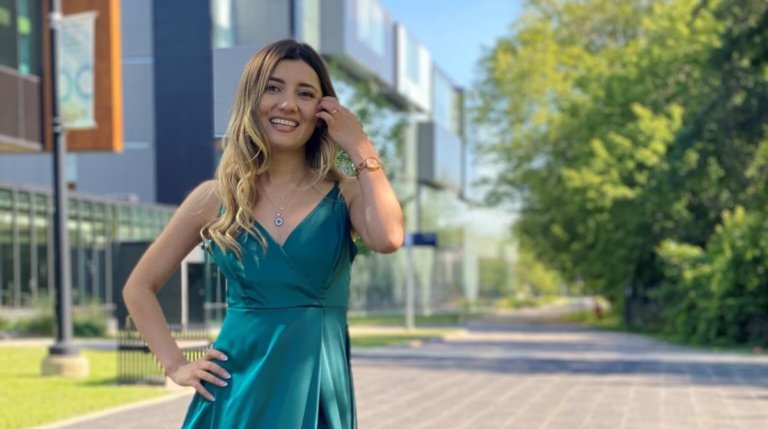
The mountainous region of Pamir in Tajikistan can be unforgiving. Its location 25,000 metres above sea level contributes to a harsh terrain and climate, especially if you are unfamiliar with the area. Despite this, University of Toronto Mississauga (U of T Mississauga) international graduate Zarina Mamadbekova says she grew up among the most hardworking, humble people in the world.
It is this sort of human insight that makes Mamadbekova the perfect candidate for her new job at her alma mater. She has already helped support the transition of new students on campus. Now, she’s looking forward to creating more positive impact as programme leader for U of T Mississauga’s student body.
“I am currently working on a speaker series and I have really enjoyed reaching out to different people to be a keynote speaker — some of them being well-known personas — and it has been quite exciting working with them on different levels,” Mamadbekova shares. Study International spoke to the student leader turned community organiser to learn more.

Zarina Mamadbekova grew up in the mountainous region of Pamir in Tajikistan, and moved to Canada for university. Source: Zarina Mamadbekova
Tell us about growing up in Tajikistan. How did this childhood shape your worldview?
Despite its geographical limitations, Pamir, Tajikistan is a hub for the most hard-working and humble people in the world. I may be biased but I have never come across a nation as united and loving as Pamiris. The characteristics of such people are what instilled a passion for community in me while growing up.
Seeing many families struck by poverty and limited access to education and resources, I always wanted to make all of it better when I grew up. That is also why my grandfather, along with my parents and the rest of my family, always encouraged me to get a good education so I contribute to the wellbeing of not only my own people, but all those around the world who need it.
Why did you choose to pursue a degree in psychology and political science, and what were the highlights?
I actually came to university with the intention of doing economics and politics, but in my first year, I took a psych course and I loved it. I was also very good at psychology, almost like it came naturally to me and the more courses I took the more my passion for it grew so I decided to major in it. Plus I come from a family of doctors; my grandfather was a doctor, my mother is a doctor and many others in my family have a medical background so that also contributed to why I made that choice.
As for political science, since high school, I enjoyed getting involved in current affairs debates and Model United Nations. I had a humanities teacher who later became my global politics teacher when I did the IB programme — he fuelled my passion for international relations and politics.
Political science seemed the most appropriate area for me because it was holistic. For example, it included philosophy where we read classics such as Plato and Aristotle, as well as comparative politics, international relations and many other aspects (such as studying theory and policies) which I thoroughly enjoyed.
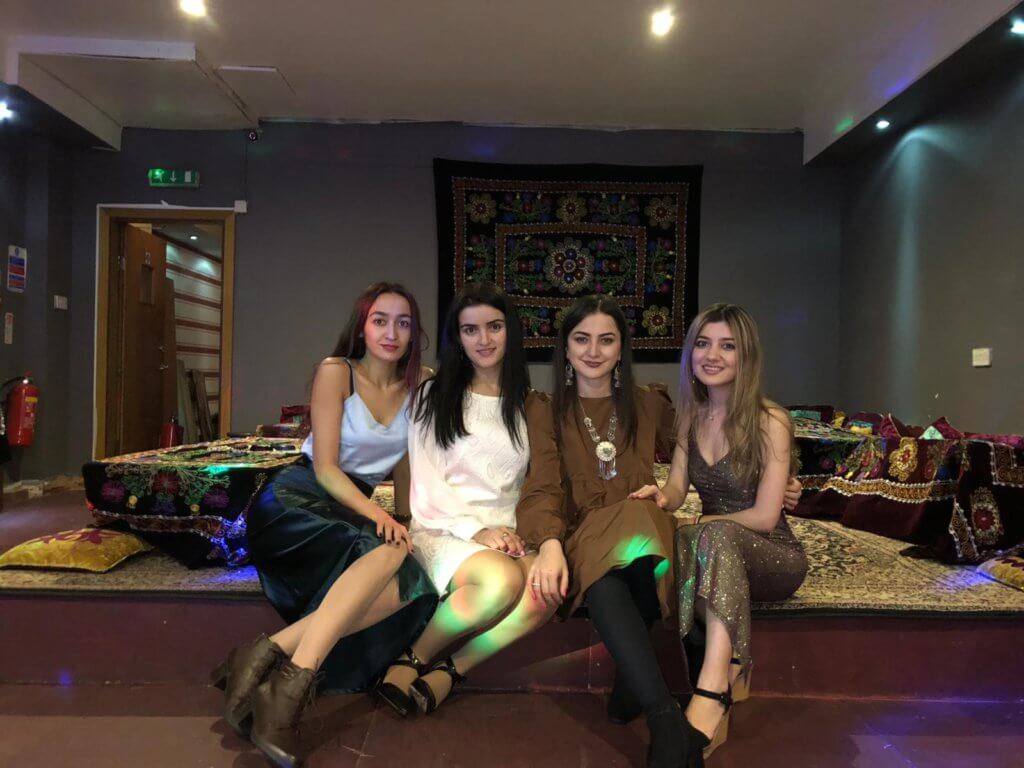
This student’s social skills allowed her to explore personal and professional pathways she had not imagined before. Source: Zarina Mamadbekova
What sports or extracurricular activities were you involved in, and how did they help you develop your interests beyond academia?
Since my first year, I have taken part in extracurricular activities, such as being part of the residence council, volunteering for the student engagement centre, taking part in activities run by the health and counselling centre and the student union. I also made sure I kept active through yoga, as well as occasional gym and mindfulness sessions offered by the athletic department.
In my third year, I went on an exchange programme to University College London in the UK, which I would say was the highlight of my university life. When I returned I worked at the International Education Centre as Team Lead for International Student Programming and developed programmes to help international students transition into university and created space for people to meet, make friends, share resources and stories and build community away from home. I was also the Director for Intramurals and Campus Recreation with the Athletic Council and focused on promoting health and wellness, encouraging students to maintain physical and mental wellbeing — especially during COVID-19 — through virtual programming.
Being involved in these helped me grow in many areas and develop skills such as leadership, communication, organisation, customer service, project management, budgeting and many more which will be of great use to me in the future. Through my involvement in extracurricular activities, I also got to know things that I liked and was good at which further developed my interest and narrowed down what kind of careers I wanted to go into.
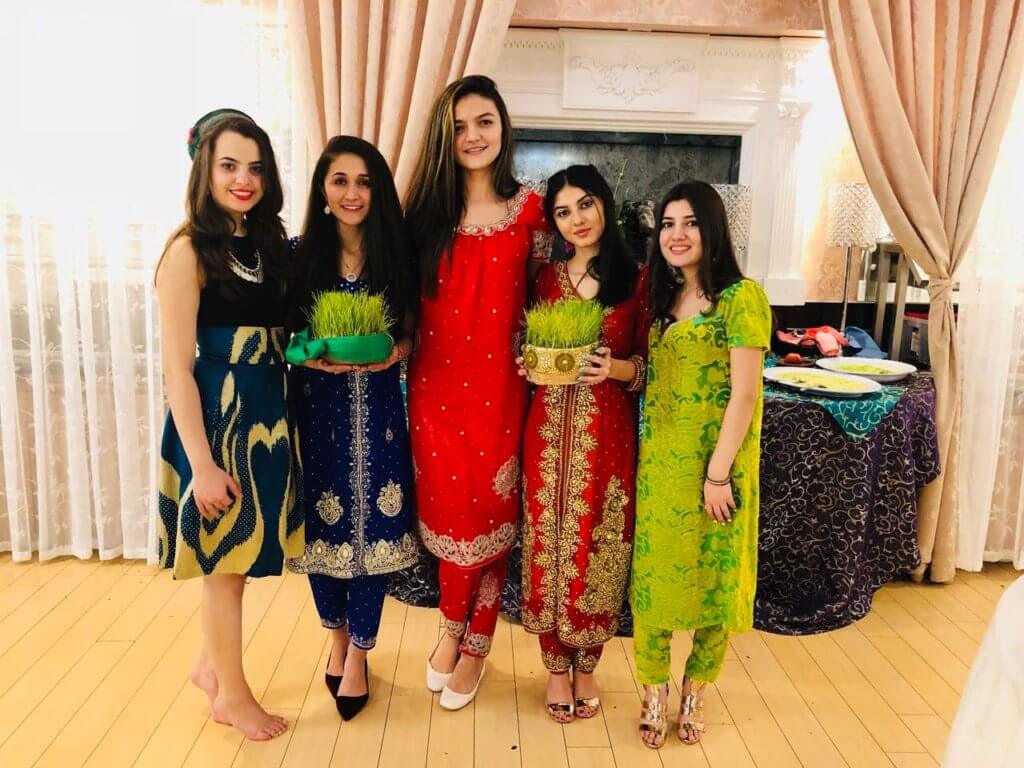
Mamadbekova started the Pamiri Youth Network with a group of friends from back home whom she met in London. Source: Zarina Mamadbekova
Tell us about your role in the Pamiri Youth Network, and how this initiative has grown.
I co-founded PYN with friends that I met when I was in London. It started during COVID-19 when one of the girls told us that a Pamiri migrant in Moscow was making baby food for her child with water instead of milk because she couldn’t afford to buy milk. Instead of collecting money to send to her, we figured we could initiate a bigger fundraiser and help more people like her that were struggling.
Since then, PYN has grown to be one of the leading youth initiatives in the region and we are on the verge of becoming an officially registered group. We have run different programmes including buying an oxygen generator for one of the biggest hospitals in Khorog, which is intended to serve neighbouring regions. We are currently working on a new project centred around fighting domestic violence in Tajikistan, including raising awareness and providing resources for people to reach out when in need.
As an international graduate, how have your experiences abroad helped you realise your career and life aspirations?
I have met many different people who I have learnt from and who have inspired me in many ways. Being abroad I have also come to know about career paths that I never even knew existed. Being abroad has broadened my horizons and allowed me to explore various paths, which have led me to experiment, learn, and in the process not only develop my skills but to also realise my passions and life aspirations — which is so important.








